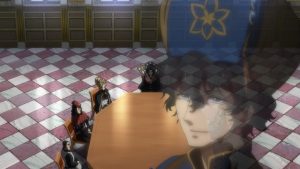 I think, more perhaps than any other year since I’ve been covering anime, 2017 has been one where many of the series I’ve enjoyed have been roundly ignored by the viewing audience. That extends even to LiA, which is really the unusual part – I’m kind of used to shows with a decent following here being met with a general yawn by the larger audience, but in 2017 I’ve covered a lot of shows which just haven’t generated much of a following. It’s not a matter of broad disagreement – more general disinterest. I don’t know if it’s a matter of my tastes changing, the audience changing, or anime itself.
I think, more perhaps than any other year since I’ve been covering anime, 2017 has been one where many of the series I’ve enjoyed have been roundly ignored by the viewing audience. That extends even to LiA, which is really the unusual part – I’m kind of used to shows with a decent following here being met with a general yawn by the larger audience, but in 2017 I’ve covered a lot of shows which just haven’t generated much of a following. It’s not a matter of broad disagreement – more general disinterest. I don’t know if it’s a matter of my tastes changing, the audience changing, or anime itself.
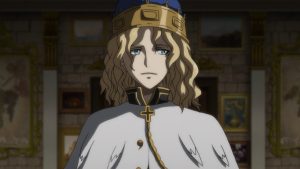 Well, with no series is that more true than Shoukoku no Altair. It’s easy enough to point to one possible reason in this case – a lot of fans of the manga (which I’m going to be starting from the beginning now that the adaptation has ended) were unhappy with MAPPA’s take, bolted early and never looked back (in some places they stuck around to bitch and moan, but you’re too classy for that). But in other respects this is the sort of series that I always hope to see get more traction here than elsewhere, because it’s quite serious and ambitious both in terms of the subject matter and the main character arc.
Well, with no series is that more true than Shoukoku no Altair. It’s easy enough to point to one possible reason in this case – a lot of fans of the manga (which I’m going to be starting from the beginning now that the adaptation has ended) were unhappy with MAPPA’s take, bolted early and never looked back (in some places they stuck around to bitch and moan, but you’re too classy for that). But in other respects this is the sort of series that I always hope to see get more traction here than elsewhere, because it’s quite serious and ambitious both in terms of the subject matter and the main character arc.
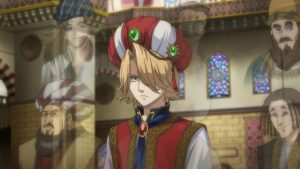 I suspect some partisans of Katou Kotono’s manga are going to claim that the anime’s virtues are simply the virtues of the manga, so it doesn’t deserve any credit. I guess my take on that would be, why does it matter? Any anime adaptation has a responsibility to be watchable and enjoyable for someone who’s never read (or played) the source material – that’s something I believe strongly. The anime is as good or bad as it is, irrespective of the degree to which it was faitfhul to the source. For me, as someone who’d read very little of the manga, Shoukoku was extremely enjoyable, particularly in the second cour.
I suspect some partisans of Katou Kotono’s manga are going to claim that the anime’s virtues are simply the virtues of the manga, so it doesn’t deserve any credit. I guess my take on that would be, why does it matter? Any anime adaptation has a responsibility to be watchable and enjoyable for someone who’s never read (or played) the source material – that’s something I believe strongly. The anime is as good or bad as it is, irrespective of the degree to which it was faitfhul to the source. For me, as someone who’d read very little of the manga, Shoukoku was extremely enjoyable, particularly in the second cour.
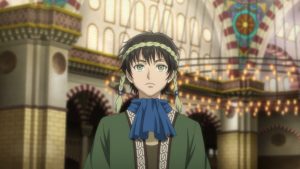 As for the finale itself, it was rock solid – but of course, the real conclusion to the ongoing plot was last week. That’s common with multi-cour large-scale narratives like this, and that’s for good reason – stories like Shoukoku no Altair need some time to contextualize what’s happened. Add to that the fact that the manga is of course ongoing, so the anime had to find an ending where one doesn’t literally exist, and there wasn’t really an opportunity for this final episode to stand out much on its own terms. But as a capstone for the series, it was on-point.
As for the finale itself, it was rock solid – but of course, the real conclusion to the ongoing plot was last week. That’s common with multi-cour large-scale narratives like this, and that’s for good reason – stories like Shoukoku no Altair need some time to contextualize what’s happened. Add to that the fact that the manga is of course ongoing, so the anime had to find an ending where one doesn’t literally exist, and there wasn’t really an opportunity for this final episode to stand out much on its own terms. But as a capstone for the series, it was on-point.
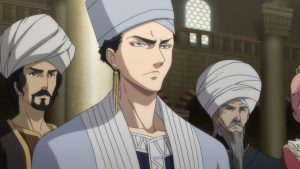 Shoukoku no Altair doesn’t ignore the small print when it comes to waging continental empire building, that’s for sure – and that’s one of the things I like best about it. Just as losing its commander can make an army stronger, as Pino noted last week, sometimes winning the “climactic” battle is the easy part. There’s the matter of governing – and rebuilding – what you’ve just conquered or defended. And there’s the matter of the larger campaign, which in this case isn’t going anywhere. As Louis tells his skeptical rivals, Balt-Rhein still has eight times the military manpower of their rival Turkiye, even with 118,000 men (and at least one woman, Lilly) lost in the battle for Cielo and Espada – they can afford to play the long game.
Shoukoku no Altair doesn’t ignore the small print when it comes to waging continental empire building, that’s for sure – and that’s one of the things I like best about it. Just as losing its commander can make an army stronger, as Pino noted last week, sometimes winning the “climactic” battle is the easy part. There’s the matter of governing – and rebuilding – what you’ve just conquered or defended. And there’s the matter of the larger campaign, which in this case isn’t going anywhere. As Louis tells his skeptical rivals, Balt-Rhein still has eight times the military manpower of their rival Turkiye, even with 118,000 men (and at least one woman, Lilly) lost in the battle for Cielo and Espada – they can afford to play the long game.
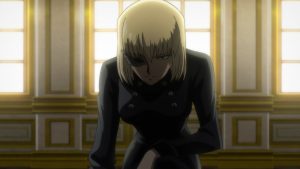 As Louis sends the Emperor off on a feel-good public works tour (using his own family’s wealth) to rebuild morale among the people, the Divan sets about deciding what’s next for Turkiye. Doge Lucio has persuaded a hesitant Cuore to accept Turkiye as the new governing power of Cielo, effectively making Cielo Turkiye’s first territory. That, in effect, makes Turkiye an empire now – a fact that Zaganos Pasha is not at all hesitant in pointing out to the Divan. It makes perfect sense for Mahmut to be put in charge of overseeing Cielo – including its reconstruction – as building is something he much prefers over destroying, and he’s already engendered considerable goodwill among Cielo’s people. But the real power in the Divan now lies elsewhere – with Zaganos.
As Louis sends the Emperor off on a feel-good public works tour (using his own family’s wealth) to rebuild morale among the people, the Divan sets about deciding what’s next for Turkiye. Doge Lucio has persuaded a hesitant Cuore to accept Turkiye as the new governing power of Cielo, effectively making Cielo Turkiye’s first territory. That, in effect, makes Turkiye an empire now – a fact that Zaganos Pasha is not at all hesitant in pointing out to the Divan. It makes perfect sense for Mahmut to be put in charge of overseeing Cielo – including its reconstruction – as building is something he much prefers over destroying, and he’s already engendered considerable goodwill among Cielo’s people. But the real power in the Divan now lies elsewhere – with Zaganos.
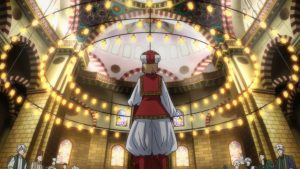 Are Zaganos and Mahmut “rivals”, in the literal sense? I would have to say yes, and not just because each, in theory, is a contender for the long-term center of power in the Divan. They also possess a starkly different idea of what power is, and what it should be used for. Zaganos is initially stunned when Mahmut says there was no element of revenge in what happened to Louis’ army, and that he hates not the country who waged war on his people and destroyed them, but war itself. And why shouldn’t he be stunned? This is now how Zaanos is wired. But despite that, there seems to be an understanding between the two young lions of Turkiye – that there is an overlap to their goals, even if their preferred methods could hardly be more different.
Are Zaganos and Mahmut “rivals”, in the literal sense? I would have to say yes, and not just because each, in theory, is a contender for the long-term center of power in the Divan. They also possess a starkly different idea of what power is, and what it should be used for. Zaganos is initially stunned when Mahmut says there was no element of revenge in what happened to Louis’ army, and that he hates not the country who waged war on his people and destroyed them, but war itself. And why shouldn’t he be stunned? This is now how Zaanos is wired. But despite that, there seems to be an understanding between the two young lions of Turkiye – that there is an overlap to their goals, even if their preferred methods could hardly be more different.
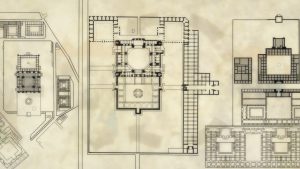 I’ll give credit to Zaganos, too, for realizing that Turkiye was not going to win the game of empires by imitating Balt-Rhein – and that as its first territory, Cielo was going to be a crucial test. Both Zaganos and Louis view Phoenike as a model, an empire that stood for a thousand years or more – this is what they want for their own country. But while superficially much alike, Louis and Zaganos are quite different as well. What they do share, though, is a profound belief that to make their dreams a reality they must crush the other – and that’s exactly what Zaganos sets out to do, launching a pre-emptive invasion of the Empire’s territory before it can fully get its feet under itself again after its crushing defeat at Mahmut’s hands.
I’ll give credit to Zaganos, too, for realizing that Turkiye was not going to win the game of empires by imitating Balt-Rhein – and that as its first territory, Cielo was going to be a crucial test. Both Zaganos and Louis view Phoenike as a model, an empire that stood for a thousand years or more – this is what they want for their own country. But while superficially much alike, Louis and Zaganos are quite different as well. What they do share, though, is a profound belief that to make their dreams a reality they must crush the other – and that’s exactly what Zaganos sets out to do, launching a pre-emptive invasion of the Empire’s territory before it can fully get its feet under itself again after its crushing defeat at Mahmut’s hands.
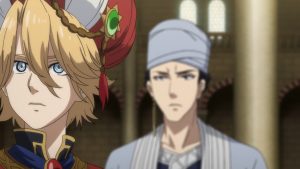 Mahmut has the toughest job of these three men, for certain. Zaganos’ belief that Turkiye can be a “benevolent” empire may be genuine, but I suspect that when that proves a pipe dream he’ll be happy enough to push forward with the empire-building anyway. For Louis, things could hardly be more straightforward. But Mahmut wants to try and build a future without war without relying on war to do it (“crushing those who love war”, as Zaganos says), and one could hardly ask for a stiffer challenge than that. For now he sticks to his ideals – when Vasco brings his plan for the weapon of mass destruction to him, Mahmut rejects it just as his mentor did. But Mahmut is going to be tested, many times over – moments will arise where taking up arms again seems to only way forward, and he’ll have to choose what’s most important to him.
Mahmut has the toughest job of these three men, for certain. Zaganos’ belief that Turkiye can be a “benevolent” empire may be genuine, but I suspect that when that proves a pipe dream he’ll be happy enough to push forward with the empire-building anyway. For Louis, things could hardly be more straightforward. But Mahmut wants to try and build a future without war without relying on war to do it (“crushing those who love war”, as Zaganos says), and one could hardly ask for a stiffer challenge than that. For now he sticks to his ideals – when Vasco brings his plan for the weapon of mass destruction to him, Mahmut rejects it just as his mentor did. But Mahmut is going to be tested, many times over – moments will arise where taking up arms again seems to only way forward, and he’ll have to choose what’s most important to him.
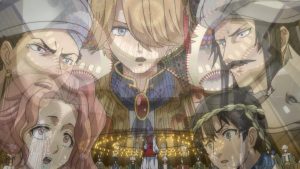 It’s Mahmut’s story which provides the spine of Shoukoku no Altair, certainly – its human face. And like all the best epic dramas, it’s the combination of grand narratives and personal struggles that makes Altair the compelling story that it is. This is a conflict as old as human civilization, and it’s not so remote from current events as we might like it to be. Altair is a well-crafted and fascinating spin on history paired with a truly noble story, that of a young man striving to be great by doing good in the face of evil. It may have taken a bit of time to find its stride, but Shoukoku no Altair ended up being every bit the standout I hoped it would be when it was first announced.
It’s Mahmut’s story which provides the spine of Shoukoku no Altair, certainly – its human face. And like all the best epic dramas, it’s the combination of grand narratives and personal struggles that makes Altair the compelling story that it is. This is a conflict as old as human civilization, and it’s not so remote from current events as we might like it to be. Altair is a well-crafted and fascinating spin on history paired with a truly noble story, that of a young man striving to be great by doing good in the face of evil. It may have taken a bit of time to find its stride, but Shoukoku no Altair ended up being every bit the standout I hoped it would be when it was first announced.
ED Sequence:
Epilogue:


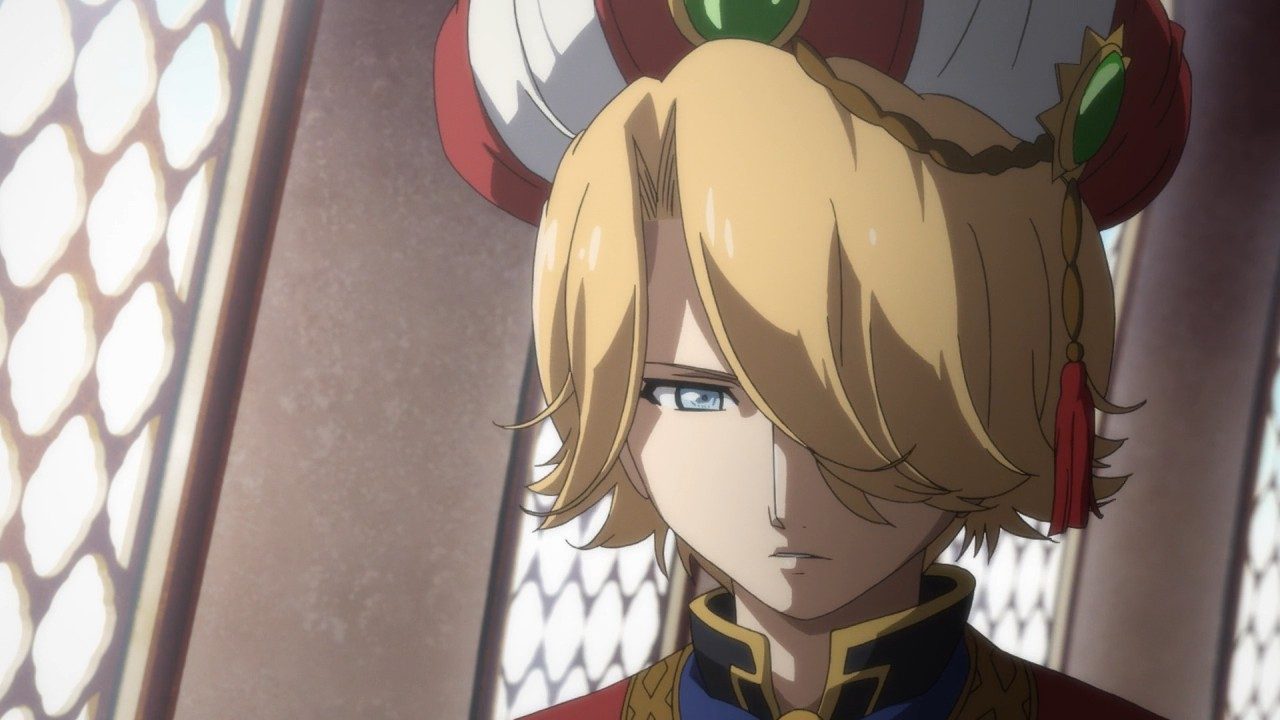
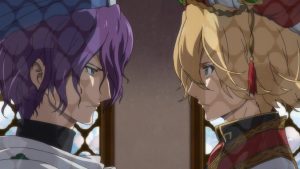
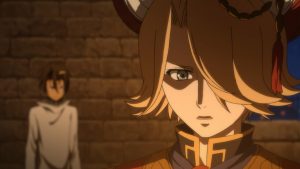
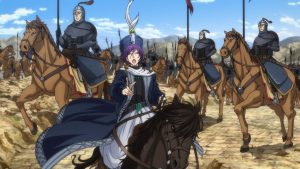
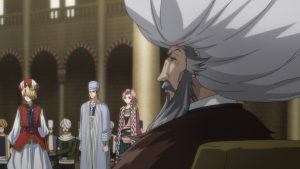
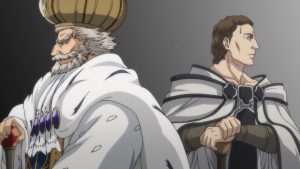
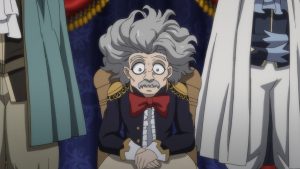
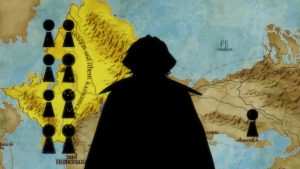
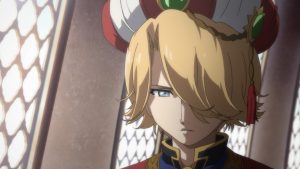
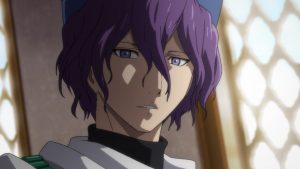
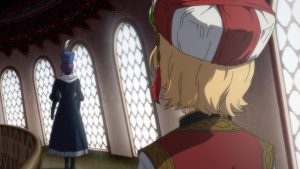
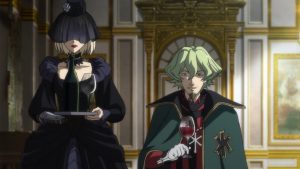
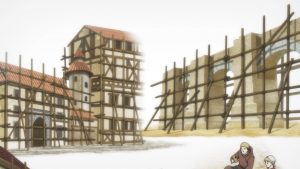



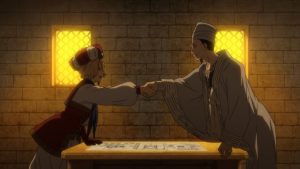
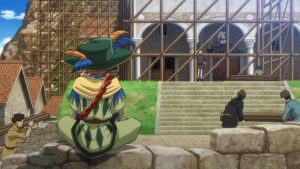
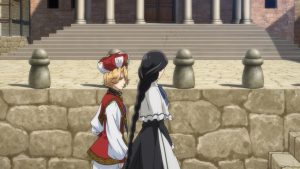
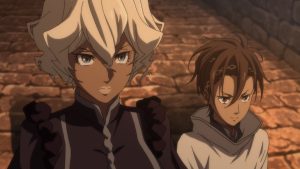
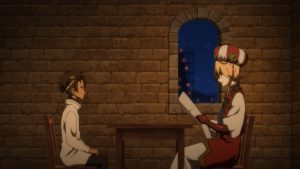
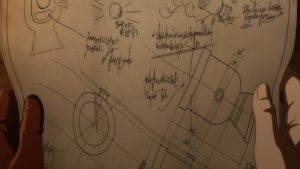
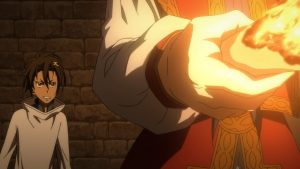
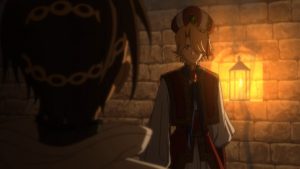
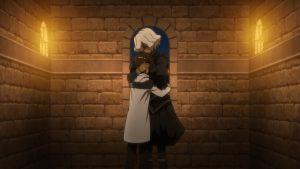


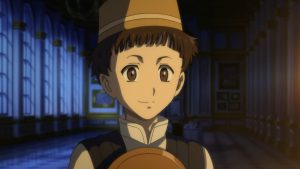
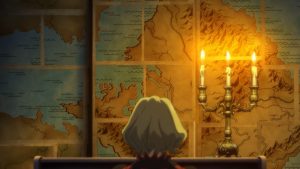

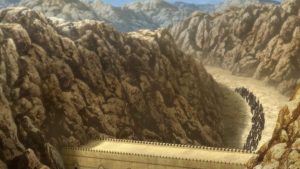

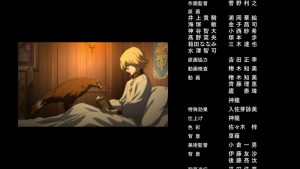
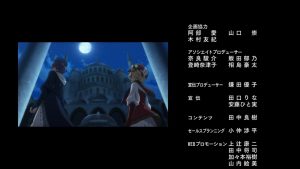

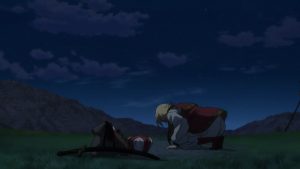


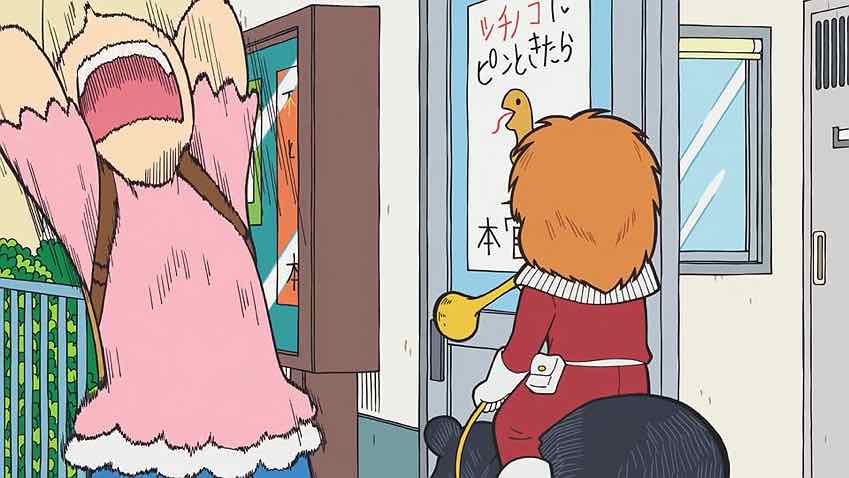
leongsh
December 23, 2017 at 4:37 amOverall, I felt like the anime did cut out a fair bit. I’m not even a reader of the manga but I felt that some parts were either hurried or chopped off. In any case, the anime is a good watch.
I don’t think we’re done with Vasco’s siege cannons. It’s just begging for them to be created and used for a siege of Balt-Rhein’s capital, to create an anime/manga alternate-reality version of the fall of Constantinople.
sweejen
December 23, 2017 at 12:16 pmI’m still with you…but I’m in my second year of grad school (and working, and raising kids). Watching one show a season is about all I can spare time for. Rest assured I’m noting your impressions and starting a queue for later enjoyment!
justfun
December 23, 2017 at 5:06 pmAltair was a great show for me, but I get why it lost its audience. They could have filled twice or thrice the episodes with the story told in these two cours – and could have improved especially in regard to the characters.
What was left was a show purely on international politics in the early modern age, an issue that shouldn’t be too popular with most anime viewers. And vice-versa, the students and professionals of political sciences or history I know aren’t the kind to be interest in some Japanese cartoon.
Guardian Enzo
December 23, 2017 at 5:35 pmWell you know, there’s always been a place for this sort of story in anime. And if that’s no longer the case and the medium is now pigeonholed as nothing more than a Japanese cartoon, that’s a very sad development.
justfun
December 26, 2017 at 2:49 amIs there? There might be more manga of this kind, but I don’t know that many anime that seriously deal with politics. Legend of the Galactic Heroes and perhaps the Patlabor movies do, and I might have forgotten one or two other shows. But most anime have a plain wrong or superficial understanding of politics, e.g. Arslan Senki.
Guardian Enzo
December 26, 2017 at 8:14 amWell, for all it’s fantasy elements I think Arslan would still count, because at least it made the effort.
I’m not saying it was ever common, but my point is that this pigeonhole as “Japanese cartoon” was never such as established stigma that series that delved into politics and military history seriously didn’t get made. A couple a year, anyway, but they were out there.
Blaise
May 12, 2018 at 3:08 pmTaking 2-3 times as many episodes to tell the story would have made it worse, not better. A lot of other anime does that to milk the content on the audience, and people are so used to it they expect it everywhere. The tension and plot points were paced very well in this anime, and slowing it down would have ruined that.
The real reason people didn’t watch it is because it had a slow start. Manga fans downvoted it, and the first few episodes were confusing. At the time the season ended, it was at 6.8 on MAL, and in the earlier parts it was around 6.5. Five months later, it’s up to 7.6.
The change in voting is indicative. The fact it’s recovered over a full point since then is actually massive and rare for an anime. All those lingering low votes from the beginning were removed, it would probably set it well over 8 and among the higher-ranked anime of the season.
The reason the anime didn’t receive widespread acclaim has to do with whatever happened in those initial votes. If it were truly a flaw of the story, it wouldn’t have gone up in votes so drastically *after* the full story was available.
Albione
December 27, 2017 at 1:14 pmA lurker here, but I needed to say how much I loved this series. There is so much I can bore people about, of course the historian in me screams ‘It was the Turks that invaded!’. It was well done, and the manga is very good, but at times just as rushed, but you have the time to go back and check. I like Mahmut a lot, we watch him grow towards manhood, and I hope to be able to follow this in the manga. The episodes that stand out are the ones at the end of the first part. It was almost Shakespearian with the killing of fathers and brothers, each one with different intentions, never hate. And Ayse, such a great female figure, played in a quiet way, ready to have her mother die for the love of her uncle and fiancee (they lost loved ones, why should I be speared?). But there are so many strong female figures during the season, good and bad, sensual and childish, free and tied by expectations and conventions. They are wives, sisters, daughters; generals, actresses, servants and rulers; acept fate or fight it, they talk and travel and are there for the story and not fanservice. How not to love this series? And will Mahmut ever fall in love? He is young, how can he deal with these strong females until he is stronger too. I hope you will palce it in your top ten, but I am worried you will not have space after you did place the much inferior Just Because, that I do enjoy, but with reservers.
Guardian Enzo
December 27, 2017 at 1:48 pmThanks for de-cloaking and commenting – I’m glad it was this series that persuaded you to do it. It really does deserve more attention than it gets.
My hope at this point is that the manga continues to be translated, because I really would like to follow this story through. Sometimes when an anime ends, so do the translations – but this is a pretty popular manga, so there’s at least some hope.
Roy bell
July 15, 2018 at 4:29 amMagnificent show
mimoy
December 6, 2019 at 2:23 ami just finished watching this anime in Amazon prime and it really got me hooked! i wish there would a second season